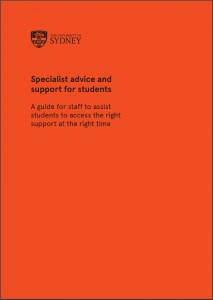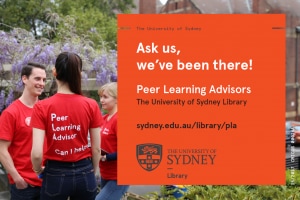“Last year I failed a student” started @andrechemist in a heartfelt provocation that quickly spread around social media:
Last year I failed a student.
I'm not saying the student got an F in my class. Sometimes students fail a class.
What I'm saying is *I* failed – as the student's teacher, as a educator, as the person responsible for giving the student a chance learn, to succeed. (1/x)
— André the Chemist (@andrechemist) August 26, 2018
He then went on to explain that a student contacted him at 2:30 in the morning in week 14, finally crying out for help after 14 weeks of feeling too embarassed and alone to ask. After months of struggling to make ends meet and rightly choosing to feed, clothe, and house their family and themselves instead of purchasing textbooks and course materials.
Last month Universities Australia, the peak body representing Australian universities, published a similarly heartbreaking report headlined by “One in seven uni students regularly go without food”. The report summarises results from a survey of over 18,000 university students in Australia, and highlights some striking findings that should make us reconsider how we see our students and the financial and concomitant pressures they face:
- one in seven students (15%) regularly go without food or other necessities – this figure rises to one in four Indigenous students and one in five students from poorer backgrounds
- 58% of students say their finances are a source of worry
- 82% of domestic undergraduate students are employed while studying
- 30% of full-time students work more than 20 hours a week
- 39% of students say that their paid work has little value to them apart from money
Beyond these hard-hitting figures, the stories from students presented in the report are even more poignant and paint pictures of adverse conditions that spiral and make it difficult to balance study, work, and life. These eye-opening accounts are well worth a read, such as from a student who is worried about their poor diet because they are redirecting funds for textbook purchases, or international students who can’t afford to seek medical care and then suffer from spiralling mental health issues, or a student who has toast for dinner, can’t make social activities, and instead spends spare waking hours at unpaid internships for their degree. These are unsettling accounts to read but are important for understanding the human impact behind the numbers.
What can we do as educators?
Be aware of the issue and available supports

Read the report, or at least the executive summary. Just knowing the breadth and depth of the problem for students in our midst, and helping our colleagues and students recognise this, is an important step. It’s also helpful to know of a few first steps that students could take, and which you could suggest:
- Meloni Muir pointed out on Yammer that the SRC have a helpful and practical guide for students living on a budget, including a reference to the Newtown Neighbourhood Centre which publishes a list of places for cheap or free meals. The SRC guide also has pointers for bills, health, housing, food, budgeting, transport, and many other parts of a student’s life.
- She also suggested the USYD Food Co-op, which offers a range of foods. No membership is required, but with a membership students can get a $15 weekly box with fresh local produce.
- Emergency loans are available from the SRC as well as from the University. The University also offers bursaries for some students based on financial need – these are outlined on the student financial support website.
- Ana Munro from Student Support Services suggested making (especially international) students aware of places like Aldi, Paddy’s Markets, etc for groceries, and pointed out ASIC’s helpful MoneySmart website that provides pointers for making the most of their money and financial support.
- She also mentioned that “the University has bought a license for the online financial literacy program, Black Bullion – students can login with their Unikey for financial tips and budgeting information: https://www.blackbullion.com“
Let students know that someone cares and that they are not alone
In @andrechemist’s reflection, two ways he identified by which he had failed his students were by (i) missing that some students weren’t engaging, and (ii) not letting students know they had support.
On the second point first, @andrechemist mentions that he now includes a ‘basic needs and security’ statement (an example of which was posted by another commenter on Twitter) on his equivalent of a unit outline, and also talks about this in class to open the conversation. Leading by example and making this an acceptable topic can help to break down barriers.
On the first point, this is often difficult especially in larger cohorts. Reminding and equipping your teaching team with information about the above resources could help – the University’s guide to specialist advice and support for students also has helpful pointers about signs that you can look for to suggest that students might be under financial strain, including being frequently late, questioning their entitlements, or wanting to leave the University. At Sydney, we also have a powerful data analytics system whose main purpose is to help teachers better engage and relate to students. The SRES can help teachers collect and act on meaningful data such as attendance, participation, Canvas engagement, and assessment so that all students can be supported in relevant ways, regardless of cohort size. Check out Alex Page and Dinesh Wadiwel’s recent post on how this helps in their first-year cohort.
Find or provide low- or no-cost alternatives for unit materials
Rebecca Johinke, Associate Dean Student Afffairs in the Faculty of Arts and Social Sciences, suggested linking students in with alternative sources for unit texts: “In the past, I’ve even looked up local library collections and told students which local libraries have the novel or text (how many copies, which branches etc)… perhaps just a prompt to students that there are other libraries apart from Fisher (and we have Bonus+ now which helps). When I teach my magazine unit I ask students to buy two magazines but I remind them that local libraries have copies that they can borrow in hard copy or access electronically – and I show them how and have a link on Canvas (and if they still can’t afford it then I just lend them my magazines – they are usually not shy in telling me they can’t afford it which is good).”
Our ability to find and provide these alternative resources will depend on our unit and discipline contexts. Some other things you might consider include:
- Letting students know about the Document Delivery options available to them through the Library, which allows them to request items from other libraries.
- Remembering Kanopy as an option for streaming films (even for leisure!)
- Leverage Open Educational Resources (OER) in your units. The OER movement aims to provide openly licenced digital assets for learning and teaching to anyone around the world; many of these assets can even be remixed or repurposed. Good places to start for textbooks are College Open Textbooks, the Open Textbook Library, and OpenStax; the first two curate textbooks in many disciplines while OpenStax focuses more on STEM subjects. For smaller assets like individual videos or modules, OER Commons is a good place to look.
- Meloni also suggests second-hand textbook sites for students to find cheaper unit texts.
Help students navigate the complexity of university

University can be a confusing place. Beyond disciplinary content and assessment, students need to navigate a myriad of policies, forms, procedures, and processes through their time with us. It may be difficult for students to find what they need quickly. Here’s some things that you could try to help:
- At various University Library spaces there are dedicated Peer Learning Advisors (PLAs) – current postgraduate students who provide advice, a friendly face, and in-depth firsthand knowledge and experience of University processes and services. They can also connect and refer students on to other experts and services in the University. Their tagline is: “Ask us, we’ve been there!”. To find out more information about locations and PLA hours, point students to this Library website: sydney.edu.au/library/pla. True to form, the PLAs even provided us some practical advice from their personal experiences: PLAs on financial tips for students (PDF).
- Refer students to the Current Students website, in particular the Support and Money sections and the Financial Support area. There is a powerful search function, and links to popular systems and frequent questions.
- Provide an FAQ in your Canvas site. Many of the Open Sites do this and they are part of the University Canvas templates because they can be so useful for students needing to find where to go for help. You could even consider including a section on financial and related difficulties there, perhaps linking to a page on your Canvas site that refers students to free textbook resources.
- Many faculties have a Canvas site dedicated to current students for faculty-specific information. Ask your local educational designer about this.
We must do something
@andrechemist ended his reflections by posting:
Students go through a lot. Some have it easy, but many others do not. Make sure they know what help is available to them and that it's okay to get that help.
Don't fail your students. (12/12)
— André the Chemist (@andrechemist) August 26, 2018
Something we must all do as educators of the next generation.
Let’s not fail our students.
Tell me more
- Visit the Student Support Services area of the University Intranet – it has many useful guides, factsheets, and links for supporting students.
- If you or someone you know is suffering from depression, contact Counselling and Psychological Services on (02) 8627 8422 or (02) 8627 8437, beyondblue, or Lifeline Australia on 13 11 14.
Many thanks to those who contributed valuable ideas to this article, including Adam Bridgeman, Ana Munro, Crystal Choi, Helen Agus, Jessica Frawley, Meloni Muir, Rebecca Johinke, and a bunch of Peer Learning Advisors.





